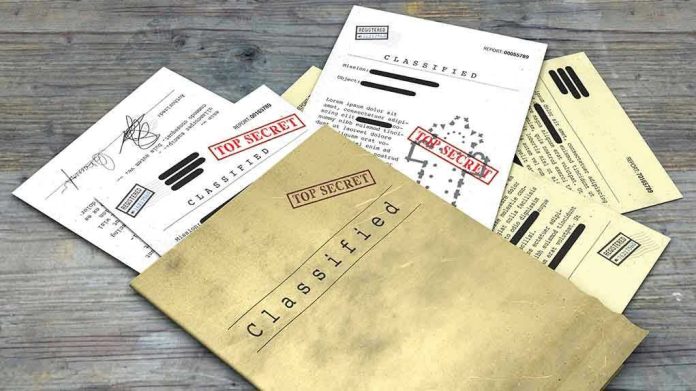
The Department of Justice’s release of long-concealed Epstein files to Congress exposes years of government secrecy and signals a turning point for accountability, igniting conservative hopes for real transparency while threatening to shake elite power structures.
Story Highlights
- DOJ begins handing over Epstein investigation records to the House Oversight Committee, fulfilling a major subpoena demand.
- Congressional inquiry targets high-profile officials and seeks answers about Epstein’s prosecution, death, and network.
- Bipartisan calls for declassification reflect broad public outrage over government cover-ups and elite impunity.
- Release of documents may reveal failures in oversight, sparking debates over federal transparency and justice reform.
DOJ’s Release of Epstein Files Marks a New Era of Congressional Oversight
On Friday, the Department of Justice will begin delivering Epstein-related records to the House Oversight Committee, responding to months of mounting pressure and bipartisan subpoenas. This action follows a high-profile demand for all documents tied to Epstein’s prosecution, his mysterious death in federal custody, and any relevant communications among government agencies. Led by Rep. James Comer (R-Ky.), the committee has also called for testimony from former top officials, signaling an unprecedented push for transparency in a case that has long symbolized elite impunity and government stonewalling. The timing is crucial, with conservatives frustrated by years of perceived inaction and secrecy under previous administrations.
The Oversight Committee’s aggressive stance reflects a growing demand for accountability, especially as more Americans question the integrity of federal investigations. Subpoenas have been issued to former Attorneys General, FBI directors, and political figures such as Bill and Hillary Clinton, James Comey, Loretta Lynch, Eric Holder, Merrick Garland, Robert Mueller, William Barr, Jeff Sessions, and Alberto Gonzales. The bipartisan nature of the inquiry, with both Republicans and Democrats joining calls for declassification, underscores the public’s desire to see what has been hidden. Conservatives, in particular, are watching closely for evidence of cover-ups and for revelations that could expose the failures of past leftist policies and globalist agendas that have eroded trust in government institutions.
Historical Context: Epstein Case as a Flashpoint for Elite Impunity
Jeffrey Epstein’s rise as a wealthy financier and his subsequent conviction for sex crimes have haunted political and legal circles for nearly two decades. The controversial 2007 non-prosecution agreement in Florida and Epstein’s suspicious death in 2019 triggered a wave of speculation about the extent of his criminal network and the possible complicity of influential individuals. Repeated attempts to access records have been thwarted, fueling allegations of government overreach, lack of transparency, and protection of the powerful at the expense of justice for victims. The Trump administration’s current approach, praised by many conservatives for promoting openness, aims to reverse years of bureaucratic obfuscation and restore constitutional oversight.
Key Stakeholders: Congress, DOJ, and the Push for Transparency
Rep. James Comer leads a committee determined to uncover the truth behind Epstein’s prosecution and death, backed by Speaker Mike Johnson and bipartisan allies. The DOJ, as custodian of the files, faces intense scrutiny over its handling of sensitive materials and its balancing of privacy, legal obligations, and political pressure. Subpoenaed officials—some potentially possessing critical knowledge or implicated in previous decisions—will testify in depositions. Internal divisions persist within the GOP: the MAGA base demands full disclosure, while some party leaders previously sought to downplay the issue. The broad coalition now pressing for answers demonstrates a rare consensus on the need for government accountability, even as disagreements linger about the scope and methods of document release.
Immediate and Long-Term Impacts: Scrutiny, Reform, and Political Fallout
Short-term consequences include heightened scrutiny of the DOJ and individuals named in the released documents, increased pressure for further depositions, and possible revelations about Epstein’s associates. Long-term, the case could drive reforms in federal prosecution and oversight, reshape public trust in government, and produce legal or reputational consequences for those implicated. Survivors and victims of Epstein’s crimes may gain new insights into systemic failures, while politicians and officials face renewed debates over elite impunity and criminal justice reform. The document release may influence upcoming elections, legislative priorities, and the broader push for constitutional protections and traditional American values.
DOJ to start handing over Jeffrey Epstein files to Congress https://t.co/egCEexRyiB
— Jim (@DAYUNITEDSTATES) August 19, 2025
Experts from legal, academic, and ethics backgrounds emphasize the importance of this moment for restoring public faith in government transparency. While some commentators argue that the investigation is politically motivated, others see it as overdue accountability after years of evasions and secrecy. The bipartisan nature of calls for transparency reflects the severity of public distrust. As the DOJ begins releasing material, all eyes will be on Congress to ensure that justice is served and constitutional principles upheld. Uncertainty remains about the full content and impact of the documents, but the process sets a precedent for future oversight of high-profile criminal cases.
Sources:
DOJ to start handing over Jeffrey Epstein files to Congress
Oversight Committee Press Release
Trump administration to deliver Epstein documents to US House Oversight Committee
Chairman Comer: DOJ Complying With Epstein Records Subpoena







